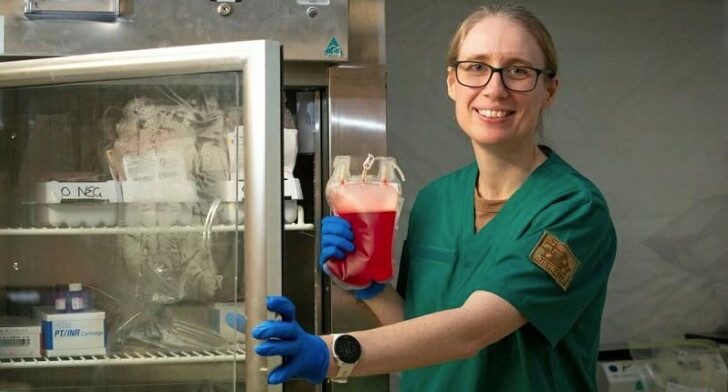A word-first medical study by Australian Defence Force researchers is aiming to reduce the risk for critically ill patients in need of platelet transfusions.
The ADF medical researchers hope to ascertain at what level patients should receive a platelet transfusion so the benefits of the procedure outweigh the risks, such as allergic reaction.
Platelets are tiny blood-cell fragments that clump together to stop bleeding and repair damaged blood vessels.
Patients in intensive care, such as those after major trauma, can have low platelet levels, increasing the risk of bleeding. Platelet transfusions are commonly given to reduce this risk.
The ADF team, led by Major Elissa Milford, recently secured a $1.8 million grant from the Medical Research Future Fund to conduct Australian clinical trials in partnership with the UK’s University of Oxford.
The study builds on the decade-long Defence research transfusion program, including another clinical trial testing whether frozen platelets would be effective for use in field hospitals.
“It will improve outcomes for patients and ensure the most effective and efficient use of donated platelets – a scarce and expensive resource,” Major Milford said.








